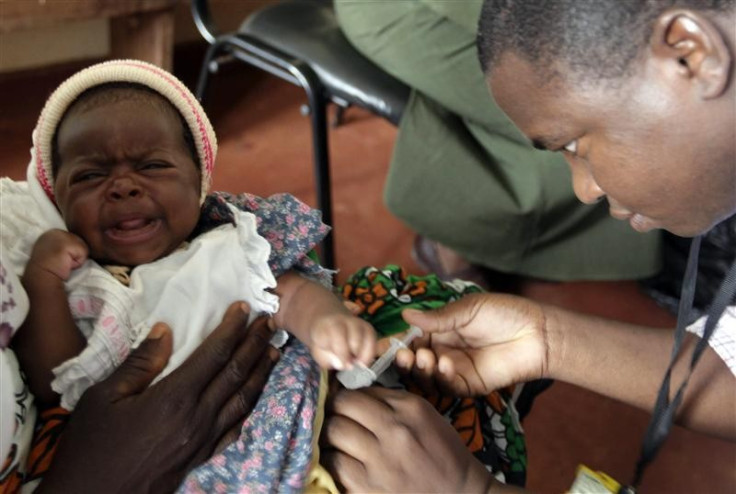Cure for Malaria: Scientists Identify Disease's Achilles' heel and Bring Hope to Millions

A potential treatment discovered by disease scientists could eradicate malaria, which kills up to three million people every year.
Researchers at Imperial College London, along with scientists at Institut Pasteur and CNRS in France, have identified a way to rapidly kill the blood-borne Plasmodium parasites that cause the disease.
The Plasmodium quickly develop resistance to current treatments available for malaria. The new potential treatment interferes with an important stage in the parasites' development and kills them.
The researchers found two chemical compounds that are able to kill the parasite during its life cycle, while it inhabits the blood-stream. The molecules were also able to kill off strains of Plasmodium that had become drug resistant.
It was found that the treatment kills 90 per cent of the parasites in just three hours. It killed all the parasites in the laboratory samples of infected human blood cells within 12 hours.
Malaria predominately affects vulnerable people, such as pregnant women and children under five, in tropical regions of Africa, Asia and Latin America.
Speaking about the possible eradication of the disease, lead researcher, Dr Matthew Fuchter, from Imperial College London, said: "Plasmodium falciparum causes 90 per cent of malaria deaths, and its ability to resist current therapies is spreading dramatically.
"Whilst many new drugs are in development, a significant proportion are minor alterations, working in the same way as current ones and therefore may only be effective in the short term. We believe we may have identified the parasite's 'Achilles' Heel', using a molecule that disrupts many vital processes for its survival and development.
"One particularly exciting aspect of this discovery is this new molecule's ability to rapidly kill off all traces of the parasite, acting at least as fast as the best currently available antimalarial drug."
Oxfam recently said that that the Affordable Medicines Facility for malaria (AMFm) scheme, currently being used to treat people with malaria, is not working and could be endangering lives.
Under the scheme, shopkeepers can sell malaria drugs. However, sellers are not trained to diagnose malaria, so may well be providing these drugs to people who do not have the disease.
Dr Mohga Kamal Yanni, Oxfam's senior health policy advisor, said: "It is dangerous to put the lives of sick children in the hands of a shopkeeper with no medical training and to pursue a scheme that doesn't help those people who need it the most.
"There is no cheap option or short cut to combat malaria. The AMFm is a dangerous distraction from genuine solutions like investing in community health workers, who have slashed the number of malarial deaths in countries such as Zambia and Ethiopia."
The researchers now plan to refine the molecules and improve their effectiveness. It is hoped they will be able to develop a cure for malaria within a decade.
© Copyright IBTimes 2025. All rights reserved.






















